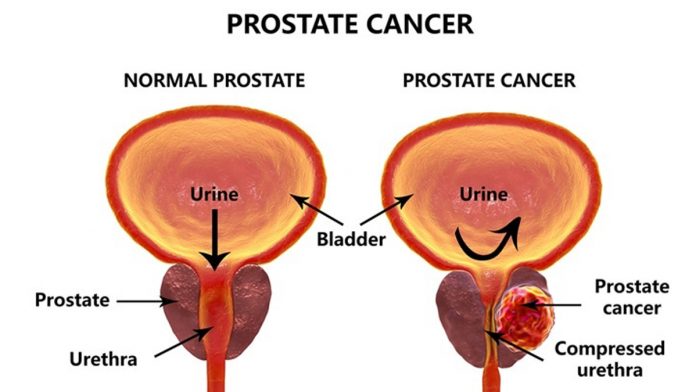PETALING JAYA – Early detection of prostate cancer is crucial in enhancing positive outcomes from treatment.
Unfortunately, not all men experience symptoms as prostate cancer is one of the most asymptomatic cancers in oncology, and many times it can be mistaken or attributed to something else.
According to the World Health Organisation, prostate cancer is the second most common cancer amongst men. In Malaysia, it accounted for 8.8 percent of all newly diagnosed cancers in 2018. That year, prostate cancer cases increased by 621 compared to 2014 statistics.
Despite the rising cases, the five-year relative survival rate for prostate cancer for all stages combined has increased from 68.3 percent to 99.9 percent in the past 25 years, according to global research.
“It is a common type of cancer in men after colon and lung cancer, but it is highly treatable in the early stages,” said Sunway Medical Centre consultant urologist Dr Badrulhisham Bahadzor.
The cancer begins in the prostate gland, which sits between the penis and the bladder, and men are at an increased risk of developing prostate cancer from the age of 55 onwards, he said.
No symptoms
Dr Badrulhisham said an estimated 3.7 million men have been diagnosed with prostate cancer worldwide.
He said most doctors believe that with an increase of life expectancy and an ageing population, the incidence and prevalence of prostate cancer are expected to rise proportionately.
“Unlike breast cancer which has early signs such as small lumps on the patient’s breast, unfortunately in prostate cancer, most men only find out when they undergo a routine medical check-up.
“Most men don’t experience any symptom until it is advanced and incurable,” he said.
More advanced prostate cancers can sometimes cause symptoms such as difficulty in urinating, frequent urination, pain during urination, loss of bladder control, blood in urine, sexual dysfunction and backache.
“However, urinary symptoms don’t necessarily mean prostate cancer as, often, It is caused by benign enlargement of the prostate due to ageing,” he said.
He also said that there are several risk factors associated with the development of prostate cancer, including age, family history and environment.
“Age is the most important risk factor in the development of prostate cancer and it is very rare in men under the age of 55 and is most commonly diagnosed in men over the age of 65.
“Fortunately, it is not common among Asian men and mostly affects African-American men,” he said, adding that those who have a family history of prostate cancer are at a greater risk of having the cancer.
PSA screening awareness
According to Dr Badrulhisham, the best way to detect prostate cancer early is by taking the prostate-specific antigen (PSA) test regularly.
“The PSA test is a simple blood test which indicates some kind of abnormality in the prostate gland. While its results may not be 100 percent accurate, the screening provides early warning signs for healthcare professionals to investigate further.
“With early detection, there is a higher chance of survivability,” he said.
He said PSA is produced by the prostate in response to a number of problems that could be present, including an inflammation or infection (prostatitis), enlargement of the prostate gland or, possibly, cancer.
“To accurately detect the cancer, patients must go through a biopsy test,” he said.
He said about 60 percent of prostate cancer cases are detected at the late stages, namely stage 3 and 4, while only 16 percent are detected at stage 1, and 24 percent at stage 2.
Free screening campaign
Sunway Medical Centre and Sunway Medical Centre Velocity are rolling out a Prostate Cancer Awareness Campaign from July to September to encourage men to recognise the early signs and symptoms of the disease, as well as overcome common stigmas associated with it.
According to Sunway Medical Centre medical director Dr Seow Vei Ken, the hospital has also observed a growth in prostate cancer cases and in 2019 it was among the top five cancers recorded at the hospital.
He said advanced technology and equipment allow treatment modalities to be targeted to suit patient conditions, thereby improving their experience and outcomes.
“We currently have four urologists and a multi-disciplinary team who have managed some of the most complex cancer cases in Malaysia and the region. Our comprehensive cancer centre allows treatments to be customised using an extensive range of cutting-edge technology,” he said.
Dr Badrulhisham said in developed countries, more patients are being diagnosed in the early stage, thanks to the awareness campaigns carried out by their healthcare providers.
“Many men don’t step forward to get themselves screened for prostate cancer out of fear of being judged. Consequently, the lack of early disclosure can prove detrimental,” he added.
— BERNAMA













